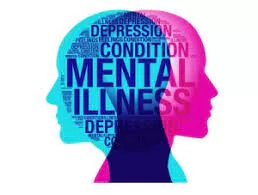
Teams from the National Institute of Virology (NIV) in Pune are scheduled to arrive in Kerala yesterday. They will establish a mobile lab at Kozhikode Medical College for Nipah testing and conduct a survey of bats, as announced by the state government in Wednesday’s assembly session. This action follows the confirmation of Nipah infection in four individuals in Kozhikode district.
In response to an inquiry in the assembly, State Health Minister Veena George stated that the virus strain found in Kerala is the Bangladesh variant, which can transmit from person to person and has a high mortality rate, albeit being less infectious. George further mentioned that, in addition to the teams from NIV in Pune, a group of epidemiologists will also arrive from Chennai yesterday to conduct a survey.
Additionally, the Indian Council of Medical Research (ICMR) has agreed to expedite the delivery of monoclonal antibodies necessary for treating Nipah patients, as conveyed by George during the session.
The minister addressed a question posed by CPI MLA P Balachandran during the Question-Answer period regarding the measures taken to combat the Nipah virus, which has claimed two lives and infected two others in Kozhikode. George highlighted several steps taken by the Health department, including surveillance, contact tracing, risk categorization, establishment of isolation facilities, demarcation of containment zones, and procurement of medicines from ICMR for those affected, all aimed at preventing the spread of this neurotropic virus.
During subsequent House proceedings, Leader of Opposition in the assembly V D Satheesan and senior Congress leader Ramesh Chennithala emphasized the necessity for updated treatment protocols for Nipah.
Satheesan also pointed out that the state was unable to declare the Nipah infection even after the Centre had done so. He stated that proper training for dealing with the virus was not provided to enough health workers, and there was a lack of data collection regarding the disease and its spread to effectively counter it in the future.
Responding to these concerns, George clarified that the state has two labs — the Institute of Advanced Virology at Thonnakkal and the Kozhikode Medical College — for testing and confirming Nipah, but they do not have the authority to declare the same. She stated, “That permission is only with NIV, Pune. We are taking steps to obtain permission to declare Nipah at the two labs here.”
Kerala Chief Minister Pinarayi Vijayan commended the Institute of Advanced Virology at Thonnakkal for its capabilities and expressed interest in investigating why the samples were not sent there for testing.
George also affirmed that the treatment protocols were initially issued in 2018, during the previous Nipah outbreak, and were further refined in 2021, which is the current standard. She asserted, “There have been no complaints about the protocols. They are formulated by medical and health experts. If any changes are required to be made to them, the same will be done.”
The health minister also assured that contact tracing and other measures to prevent the spread of the infection were being carried out effectively.
Seven village panchayats — Atanchery, Maruthonkara, Tiruvallur, Kuttiyadi, Kayakkodi, Villyapalli, and Kavilumpara — in Kerala’s Kozhikode district have been declared as containment zones.
Immediately after the confirmation of Nipah virus infection in Kozhikode district on Tuesday, Vijayan urged people not to panic but to exercise caution. He emphasized, “Everyone should strictly follow the instructions of the health department and the police and fully cooperate with the restrictions.”
One of those infected with the virus was a nine-year-old boy. The death of the first person, on August 30, was initially attributed to liver cirrhosis comorbidity. However, his son, the nine-year-old boy who is already in ICU, and his 24-year-old brother-in-law are the two positive cases that were detected on Tuesday.











